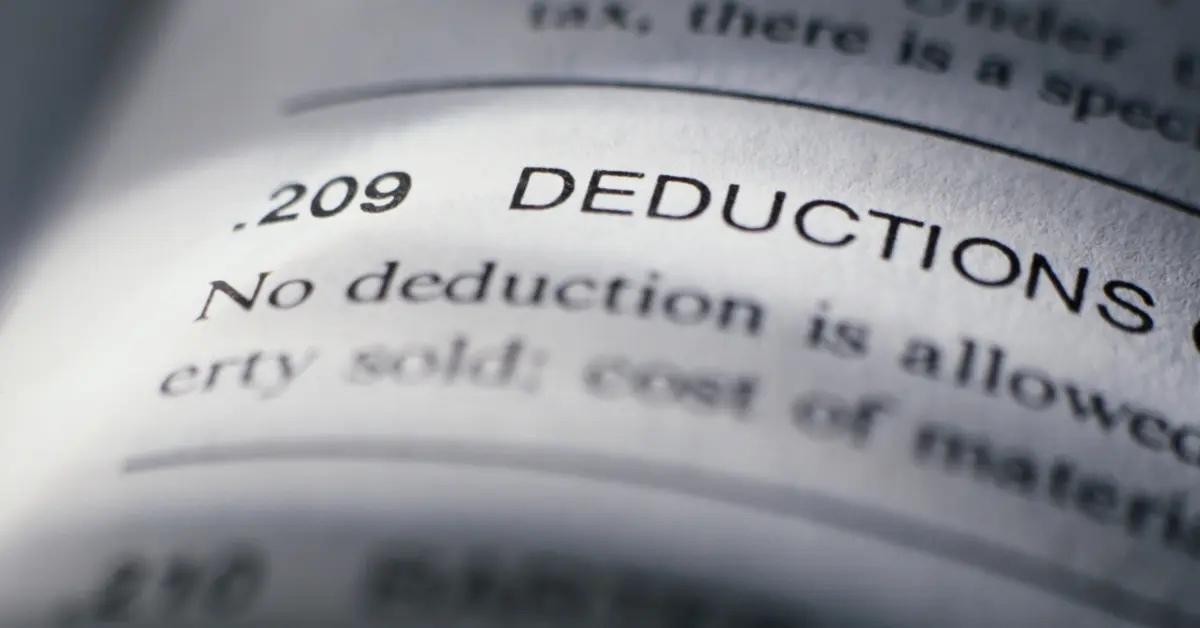Don't Let These 15 Large Tax Deductions and Credits for 2023 Slip Away
The child tax credit and gambling loss deduction are only two of the many tax deductions and credits that can reduce your tax bill. What are some others?
April 18 2023, Updated 10:29 a.m. ET

Tax season starts in January and ends in April, except for those who request an extension. By the end of January, you should have all the W-2s and other paperwork needed to file your taxes for 2022.
Whether you're on the verge of filing or plan to in the coming weeks, now would be an excellent time to educate yourself on what tax deductions and credits are available to help reduce what you owe Uncle Sam.
Tax deductions and tax credits both reduce the amount of taxes you owe on your income. Tax deductions are expenses you can deduct from your income to help put you in a lower tax bracket. A tax credit is a credit that can reduce the amount of taxes you must pay for the year. Keep reading for 15 popular tax deductions and credits you should know about this tax season.

Here are 15 tax deductions and credits you should know about for 2023.
Tax deductions and credits can change from year to year. It’s worth noting that most deductions may only benefit you if you itemize your deductions instead of taking the standard deduction. Also, most of the tax deductions and credits offered have income restrictions you must meet in order to be eligible. Let's take a look at a few.
1. Charitable contribution deduction
If you donate to charity, you can deduct the amount you give from your income. This not only applies to financial contributions you make to charities but also to donations you make to the local food pantry or Goodwill thrift store. You can also deduct mileage, parking fees, and tolls if you drive for a charitable organization.
2. Gambling loss deduction

This doesn’t mean you can write off every lottery ticket you buy or $100 bucks you spend on the slot machine. You can only deduct those expenses if you win and you report those winnings on your tax return (which you are legally required to do). So, if you win $3,000 at the blackjack table, you could deduct what you spent on gambling, as long as it's less than your winnings.
3. Student loan interest deduction
College students and their parents may be able to deduct up to $2,500 for the interest they paid on student loans. You must meet certain income guidelines to qualify for this deduction.
4. Medical expenses deduction
Your costs for qualified, unreimbursed medical expenses that amount to 7.5 percent of your adjusted gross income can be deducted from your taxable income. Medical expenses such as nursing home care, acupuncture, dentures, and addiction programs are all tax deductible. You can refer to IRS Publication 502 for a complete list of what is and isn’t deductible.
5. State and local taxes deduction
You can choose whether to deduct state and local sales tax or income tax, but you can’t deduct both. Homeowners can also deduct the property tax they paid on their homes. There is a $10,000 threshold for the state and local tax deduction (property and income or sales combined) or $5,000 for those who are married and filing separately.
6. Mortgage interest deduction

The mortgage interest deduction is a tax benefit for qualifying homeowners. It enables them to deduct what they pay in mortgage interest from their income. If you bought your house after Dec. 16, 2017, you might be able to deduct the interest on the first $750,000 in mortgage debt ($375,000 if married filing separately).
7. IRA contributions deduction
You can lower your tax bill by deducting the money you save for retirement through contributions to a traditional IRA. For 2023, you can contribute up to $6,500 in an IRA if you are under 50. If you are over 50, you can contribute as much as $7,500 for the year.
8. Retirement savings contributions credit
Also referred to as the "saver’s credit,” you may qualify for a tax credit of up to $1,000 just by contributing to a retirement savings account like an IRS or 401(k).
9. Home office deduction
If you're self-employed and work at home regularly, you can save on your taxes by taking a home office deduction. This deduction can include part of your rent/mortgage, utilities, and other expenses associated with your home office.
10. Educator expenses deduction
School teachers and other educators may be able to deduct $300 spent on supplies for their classroom. If you take this deduction, save your receipts for eligible expenses.
11. Child tax credits
If you have children, there are several tax credits you can take advantage of. For the 2022 tax year, you may qualify for a child tax credit of up to $2,000 per child. You may also be eligible for a tax credit on what you spend for daycare for children under 13. If you adopt, you may get a tax credit of up to $14,890 for your adoption costs.
12. Residential energy tax credit
Homeowners who take steps to make their home more energy efficient may qualify for an up to 30 percent tax credit on installation costs. This includes installing solar panels and water heaters, energy-efficient windows and doors, or biomass fuel stoves.

13. EV tax credit
If you bought an electric vehicle in 2022, you might qualify for an up to $7,500 tax credit on your purchase. Not all vehicles are eligible for credit. The IRS website has information on what cars qualify.
14. American opportunity tax credit
Undergraduate college students may get a tax credit of up to $2,500 on what they spend on tuition, fees, books, and supplies. A student can claim 100 percent of the first $2,000 they spend and 25 percent of the next $2,000. Expenses for housing and transportation aren’t eligible.
15. Lifetime Learning Credit
The Lifetime Learning Credit is similar to the American opportunity tax credit, but it also applies to students enrolled in graduate programs and vocational schools. Students can claim 20 percent of the first $10,000 they paid in tuition, fees, books, and supplies.
